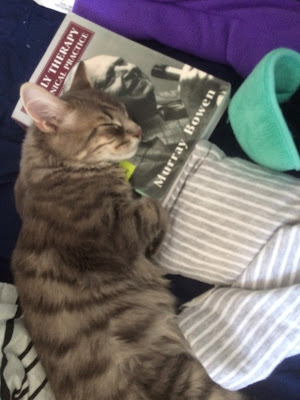I had learnt so much from this young person. I think it is only fair that she has a mention in my work. You know those moments where you thought you know certain things and you realise you actually had not when you truly experience what it means? This is one of those moments.
When it comes to problem definition, I had bought into the philosophy of clients defining their problems. To be able to engage clients and support them in their challenges, it has to be a situation where they thought seeking therapy may help them address. I thought I understood how this works until I met this 15 years old.
We met. It was clear from the onset what she thought the family difficulties, or at least, part of it, were. She had a “lazy mum” who she felt had not taken up any responsibility at home yet constantly complained that she was so busy with stuff. A typical interaction will have Mum shouting to one of her four daughters (aged 19, 17, 15 and 14), very often, Client (in her words, she was the only one who would be bothered with her), to bring her a cup of tea. This does not matter when Mum was 10 steps away from the kitchen and Client was upstairs in her room. While Client and the Nan would be busy at the store front, Mum would be at the back playing games on the computer. The children were generally responsible for taking care of the house from cooking to cleaning. They have a roster to work with. Mum’s reason was she has chronic fatigue syndrome but Client said that was never diagnosed. That had created a lot of conflicts among them. Earlier this year, Client was referred to me after a self-harm episode which was triggered by an argument at home with her eldest sister and Nan over misplaced items.
My initial hypothesis back then was that there were conflicts between the parental and child subsystem and some negotiations would be helpful. With that and adding a little dose of collaboration, my plan was to explore with Mum what narratives she had being a mother in her contexts and possibly look at doing some restructuring work. The recommended plan was to have a mixture of individual and family work so that Client has a space to discuss some of her concerns that she had not been able to do so in front of her family. The individual sessions took flight. But not the family sessions. Plans to arrange for that did not worked out. As I was planning with the Client on the family session, getting her ready for that, she told me while she thought it would be good for her family members to hear each other out, she did not think they would be receptive. She foresees them being all defensive. She said they generally do not like to be told they were in the wrong. Although that was not my intent, but I saw the reluctance in the young person and did not pushed on also partially in consideration that she had been feeling better interacting with her family members. We continued our individual work.
Along the way, I never gave up on checking in on the family relationships. There were ups and downs. Initially more downs and subsequently more ups. Things appear much better at home. Client was also moving from having regular to no further self-harm thoughts in the past 6 months. Relationships among the sisters were great with them attending concerts and tours. Occasional bickerings but nothing that threw Client off tangent. She was also coping better with her peer relationships although there were still difficulties and she had plans for her future. Mum, is still being described as the lazy Mum. Occasionally, she tried going to do grocery shopping, but she often got the food she liked (microwavable food) but the children hated. The girls took over the kitchen. Cooked food was served when one of the sisters was at home. Else, Mum would prepare microwavable food unless one of the other girls decided to cook. The 19 years old sister started bringing them including Mum out for holidays, concerts and movies. On her pay cheque which also pays her college fee. The youngest sister started to clear up after herself, when she was in a good mood. Client continued to be the gel among everyone and run errands for the family. The family overall was happier. Still having arguments here and there. But overall, better. Was it my intervention with the family? Of course not! I think my work with the Client while keeping an eye on what was going on in the family allowed us to think about who else was in the family and how through Client’s perseverance and continuous engagement with her sisters, they managed to work around Mum. She told me in jest that Nan had given up on Mum from a young age. Mum had the neighbour panicked and told the parents that the house had been burgled when she saw the mess it was in after Mum accidentally left the house door opened. Mum’s parents told the neighbour, it was not. Client had not given up loving her Mum. She just given up having her Mum changed this bit of her. Together with her sisters, they had created a much harmonious life for themselves at home. Is this an ideal family from the textbook? No. But is this good enough for this young lady? Yes. In fact, I thought that if I had insisted on family therapy and bring everyone in, I am not confident if this is a place that we would be at today. She showed me how there are many ways to work with families.
As part of our review/ending work, I invited Client to help me write up a review report for her. A mocked activity that I thought would help consolidate all the progress and boost the confidence of this young lady to handle things outside of therapy (which was another area relating to ending that we had worked on). With her permission, I have included a copy in this month’s entry.
For that, thank you, Louise*.
[Name has been changed to protect confidentiality of client.]
















































